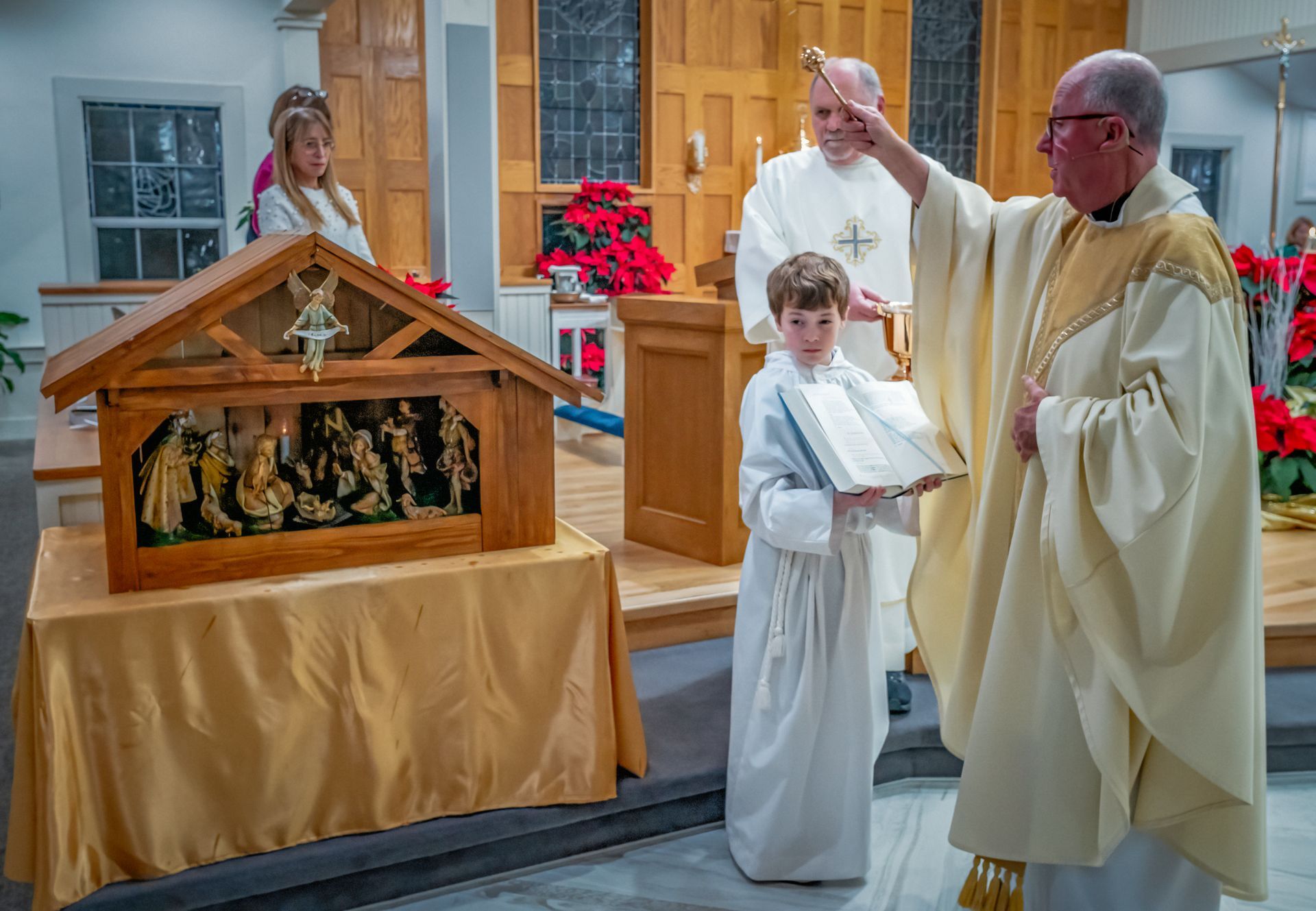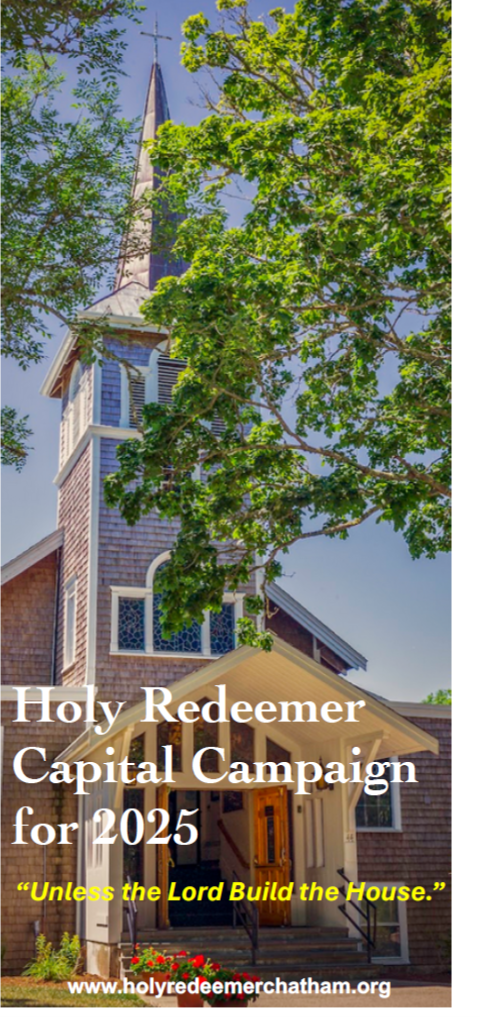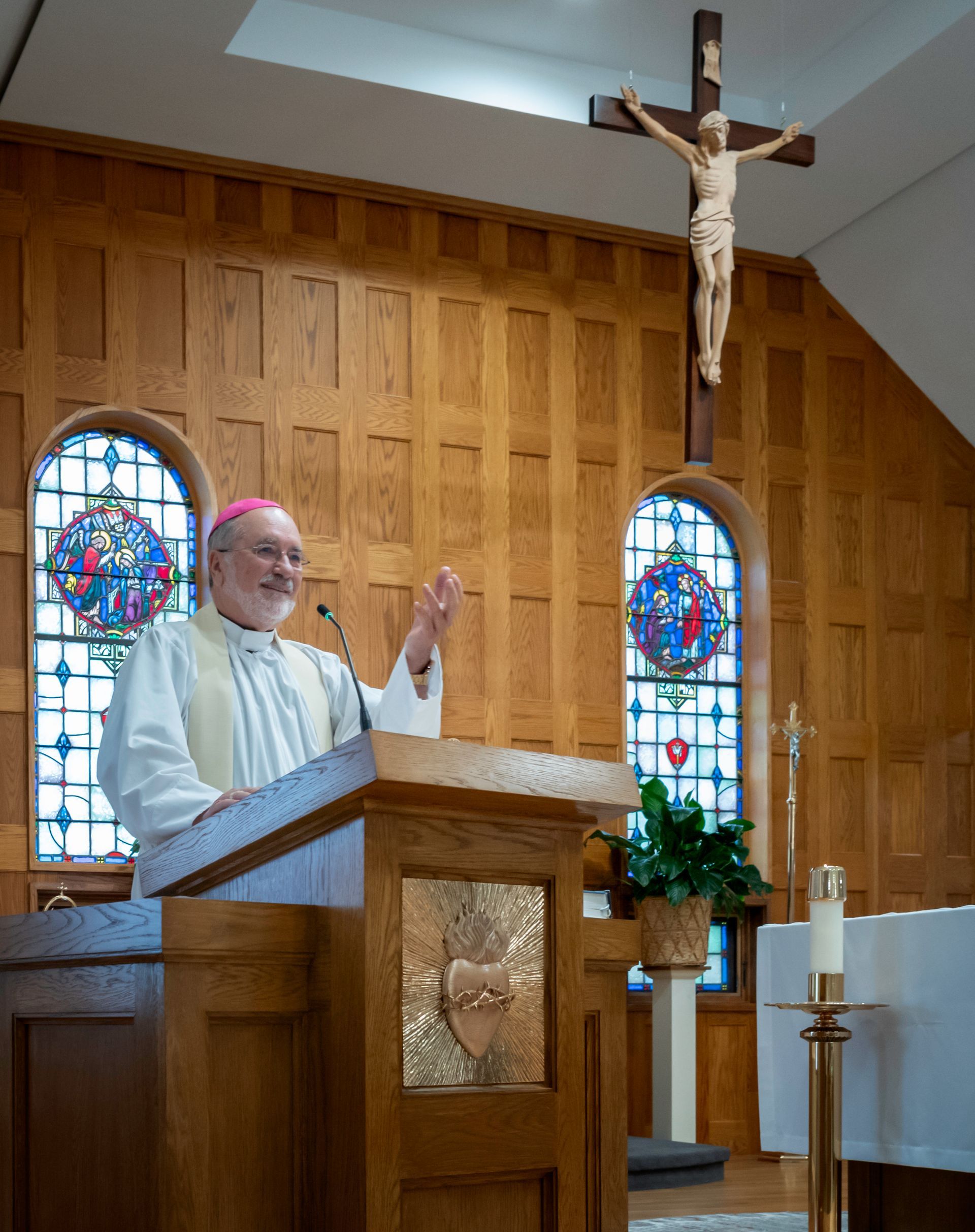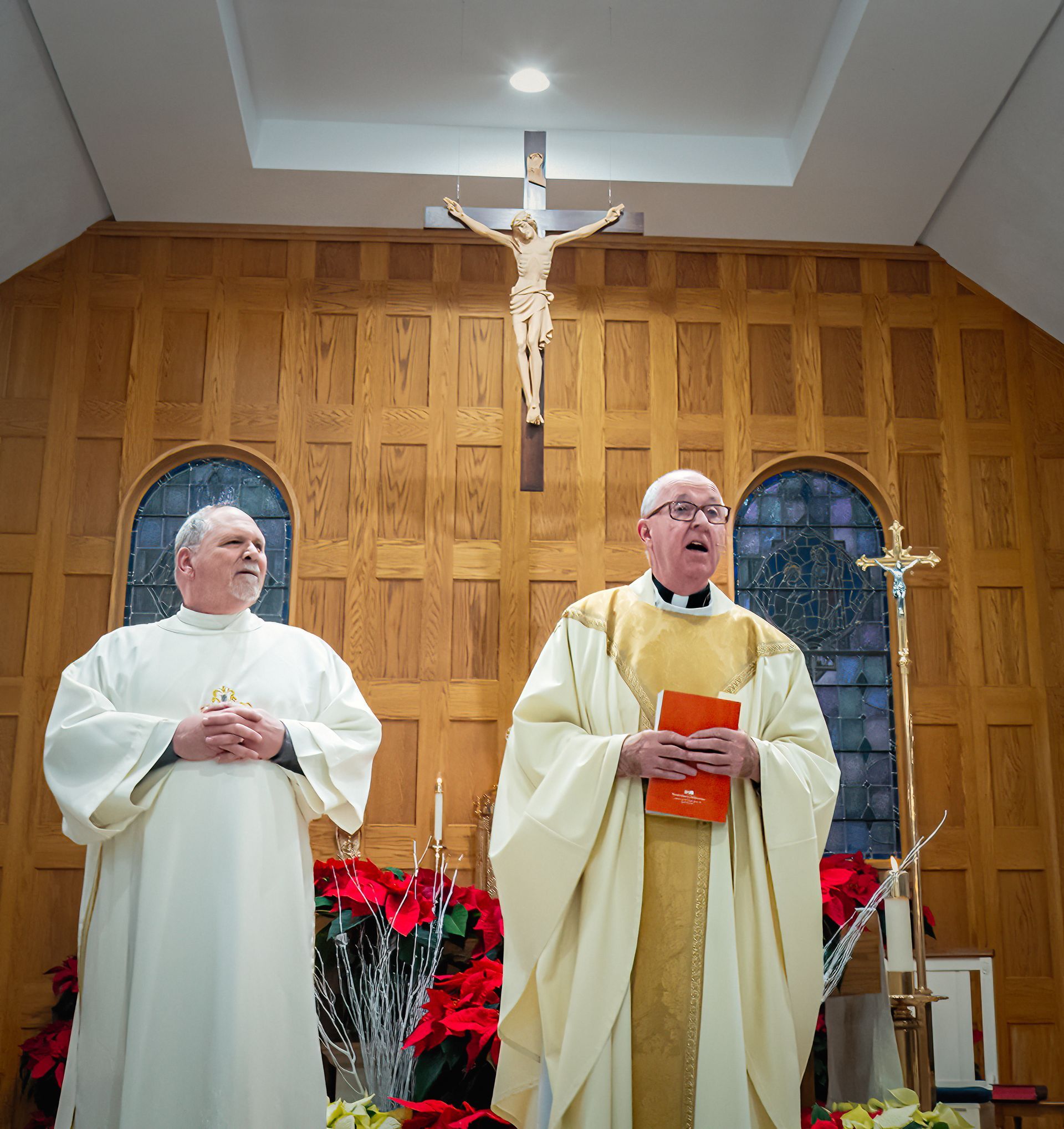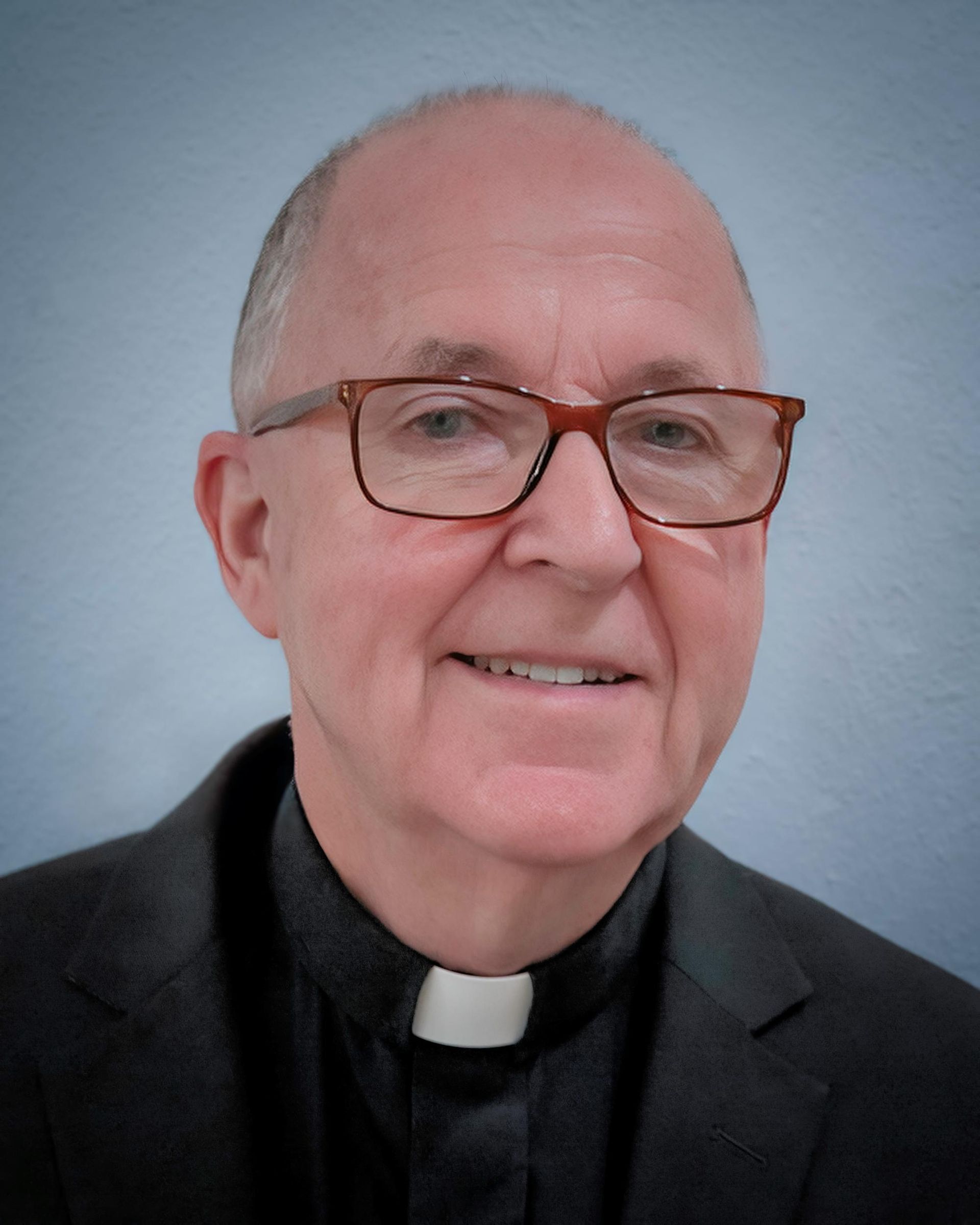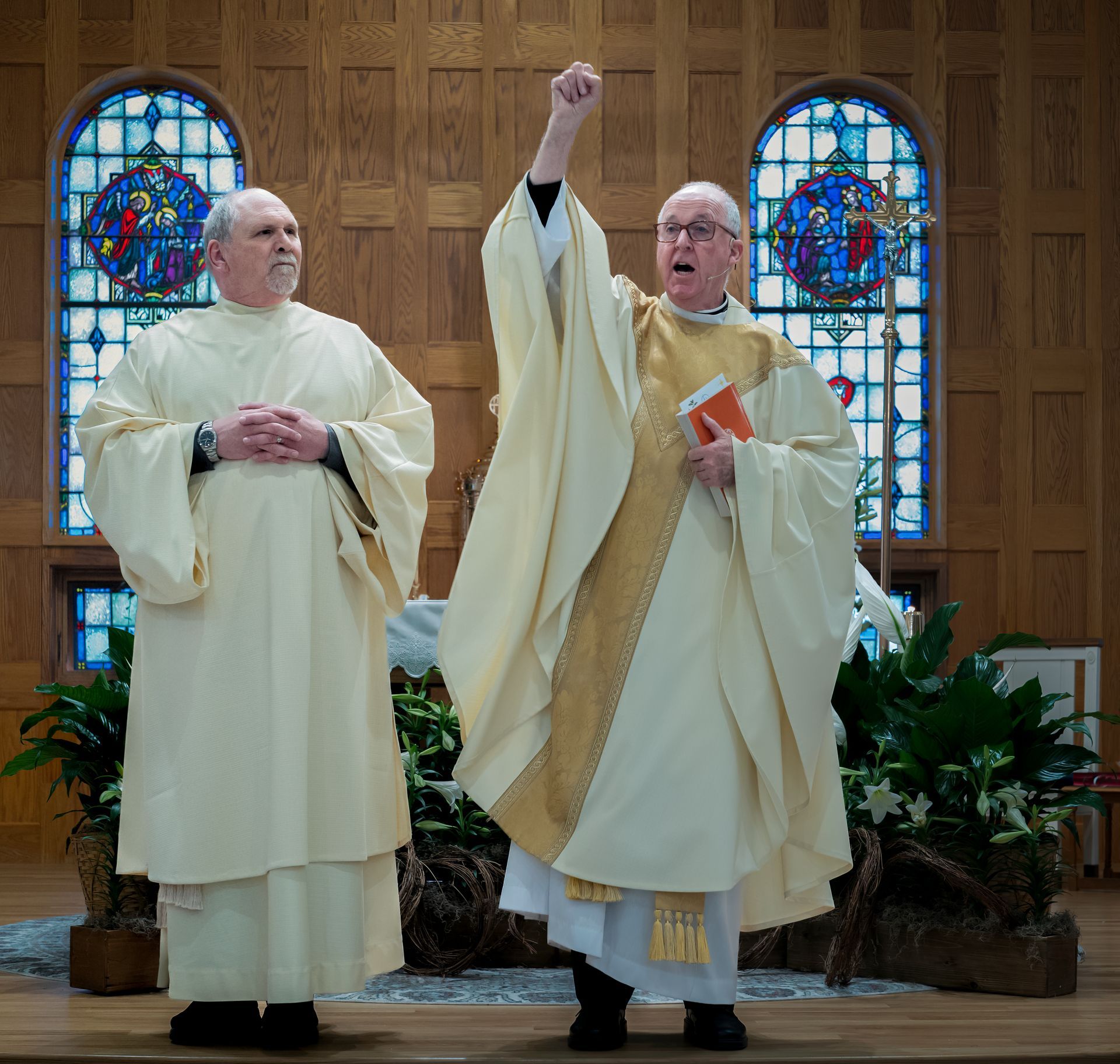2nd Sunday of Ordinary Time Homily
Homily for the 2nd Sunday in Ordinary Time: Fr. John Sullivan
Risk Management: Every morning, as I prepare for the day, I have the radio playing in the background. It is tuned to a local station. Day in and day out, I hear the same advertisements for Hyannis Honda, Thurwood Place, and Cape Cod Five. I have listened to them so often I am sure I could recite them from memory. One commercial is for a financial planner. In her ad, she claims her company is set apart by its focus on helping customers be attentive to risk management. She claims that she can help us prepare financially for the unexpected vagaries of life.
Life is full of unexpected events. Some are pleasant surprises, and some are not. They can be unwelcome and jarring to our routine. We all make plans for the course of our lives, but that isn't always how things pan out. When hit with unexpected circumstances and happenings, why do some people thrive and flourish while others are shaken? In the face of challenges, why do some rise to the occasion while others fall apart? Some people grow in their faith in God when tested by life, and others turn their backs and blame God.
God wants to help us through the trials of life, both good and bad, so we can use them to grow and strengthen our faith. God can work through difficult situations because that is when God has our attention. Even those who claim not to be religious will naturally call out for God's intervention when the going is tough. We can never plan for the unexpected events of life; by nature, they are situations we never saw coming, but we can prepare for them with spiritual risk management.
Today, we are at the mid-point of a series of homilies Deacon Art and I have been giving on the theme "Unexpected." We have addressed the need for spiritual risk management. It is a theme that is very relevant for all of us. Perhaps you know someone who would benefit from attending church to hear about this topic? Even though we are at the midpoint of the series, there are still lessons to learn over the next two weeks. So, invite them to come and join us.
I want to remind you that if you have missed either of the previous two homilies in this series, you can catch up on them by listening to them on our Livestream. Each week, we archive one of our Masses on our website. Go to it and click on our Livestream. Just follow the prompts for the film of the Mass you would like to view.
How do we spiritually prepare for the unexpected in life? What key factors help us weather life's storms, right the boat, and head for safe harbor? In my first homily, I told you that community connections are vital. We need a support system. It is much easier to carry any burden when we have people who care about us and want to help. A sense of community is slipping away from more and more people. They feel as if they are adrift.
Commit to this parish community. Don't just come to church with the attitude of fulfilling an obligation you need to get out of the way. Commit to this church. Make sure we have you on our parish rolls and promise to support our parish with your time, talent, and treasure. You'll find a spiritual safety net here. When a problem or challenge arises, resist becoming overwhelmed and confront it as an opportunity to grow and develop virtues you didn't realize you had in you.
Last week, Deacon Art added two other aspects needed for successful spiritual risk management and dealing with the unexpected. Remember, God is good even when life isn't. God isn't a manipulator who places stumbling blocks and hurdles in our way. God wants to heal us, not hurt us. Sinful human nature causes hardships, and sometimes there are innocent victims, but God always wants the fullness of life for us. We can turn to God in need.
Deacon Art's other point was that we can use our pain to help others. The Los Angeles fires prove that point. Media coverage has related stories of residents who have lost everything to the fires yet are now working to bring aid and comfort to their neighbors.
Today, I'd like to tell you how we can grow from our bad choices. Everyone has found themselves in situations they never wanted. They are circumstances we thought happened to other people. They are situations where, realistically, we know we only have ourselves to blame.
Sometimes, a series of small mistakes build up, and we find ourselves in trouble. Maybe we focused so much on our careers or business and had no time for family. Now, they are strangers to us. We're in debt because, little bit by little bit, we failed to restrain our desire for more things. We didn't intend to flunk school, but couldn't resist a party. We let ourselves lose interest in our job and are just mailing it in these days. We live in isolation because we don't follow up to support our relationships.
Every human being sins. We fail to do what God wants of us, do regretful things, and hurt others, especially those we say we love. Sin can become like the puddingstones we see along the highway. One small sin combines with other minor sins to create a heavy load for us to carry. If we are open to God's grace and forgiveness and face our bad behaviors, we can grow closer to God while correcting our sinful situations. Sin doesn't disqualify us from receiving God's mercy and compassion. It can be the entryway into a new relationship level with God.
That is the lesson on spiritual risk management and dealing with the unexpected that the prophet Isaiah wants to teach in today's first reading. The Book of the prophet Isaiah is one of the longest books in the Bible. We read excerpts from it very often at Mass. Bible scholars believe the Book of Isaiah to be at least three books written over a hundred years.
The beginning of the Book of Isaiah focuses on reproaching the people of Israel for their unfaithfulness to God. It tells the people how God established a special relationship with them as they wandered in the desert after the Exodus. They were supposed to be the light of the nations. God's plan was for them to live as a people dedicated to following God's law of loving kindness. Their faithfulness to God would help them to prosper so much that they would impress the nations with whom they had contact that others would want to worship the one true God. At least, that was God's plan.
Israel became prideful, though. They turned away from God. God allowed this to happen so they could experience the consequences. Their unfaithfulness caused instability in Israel, and they eventually were conquered by the Babylonians and forced into exile. They suffered greatly because of their unfaithfulness.
Today's reading is part of the Book of Isaiah, known as Second Isaiah, written as the exile ended. The punishment of the people was subsiding, and the Persians were allowing the Jews to return home. Second, Isaiah is much more upbeat and hopeful. It proclaims God's new relationship with a chastised people. In Second Isaiah, the author tells the people how a Messiah will come and restore God's relationship with God's people.
Isaiah wrote:
For Zion's sake I will not be silent,
for Jerusalem's sake I will not keep still,
Until her vindication shines forth like the dawn
and her salvation like a burning torch.
God declares the people vindication. The Bible uses that term a little differently than our everyday usage. When we say someone is vindicated, we usually mean they are off the hook. Unjustly accused, now the evidence proves the charges are false.
Isaiah used the word vindication to mean the Messiah would come and teach the people to clean up their mess. Verse two said:
Nations shall behold your vindication,
and all kings your glory;
You shall be called by a new name
bestowed by the mouth of the LORD.
God will rename the people. God will give them a new identity.
No more shall you be called "Forsaken,"
nor your land called "Desolate,"
But you shall be called "My Delight is in her,"
and your land "Espoused."
For the LORD delights in you,
and your land shall be espoused.
Often, others give us names they want to use to define us. It is the usual practice of bullies and has become very popular among some in our culture. People try to define others by the names they call them, such as loser, liar, drunk, or dumb. Sometimes, we pin those names on ourselves.
In primitive cultures, renaming a person as they progressed through life was common, especially as they entered a new reality. God renamed Abram, Abraham, and Jacob, Israel. Isaiah tells the people God is going to rename them. God will change their name from "Forsaken and Desolate," the names they were called by the conquers, to "My Delight and Espoused," the names a bridegroom would use to describe their beloved. With a new name, God will wipe away their nation's past sinfulness and start a new relationship of trust and faithfulness.
God knows the names used by the people trying to define you negatively. Some of those names might have been true. God wants to let us know our past doesn't need to define us. God wants to bring about our vindication. God wants to give us the grace to clean up our mess.
Isaiah wrote:
For as a young man marries a virgin,
your Builder shall marry you;
And as a bridegroom rejoices in his bride
so shall your God rejoice in you.
Despite our sinfulness, God delights in us and is fond of us. God overlooks our past faults and pledges to love us. God is committed to us, not only if we do good deeds but whenever we accept God's rule in our lives. God still loves us if we sin. We can't earn God's love; baptism gives it to us freely.
God allows us to suffer the consequences we earned because of our sinful behavior so that we will learn and deepen our faith. God allows suffering so we can start seeing our way down the more faithful way. People who grow in faith acknowledge their sins before God, accept God's forgiveness, and seek mercy. They grow in the knowledge of God's love for them and become the Lord's instruments of mercy, forgiveness, and compassion. Let's accept God's forgiveness and become instruments of love because God knows God needs us.

